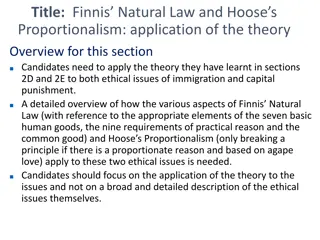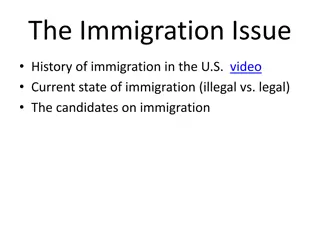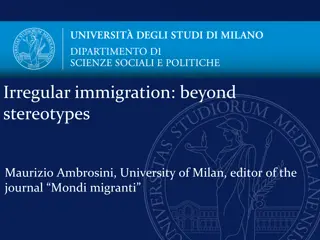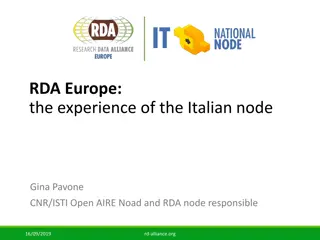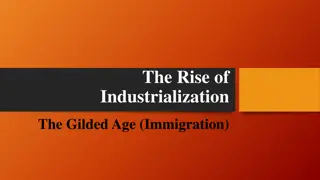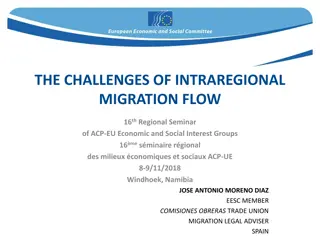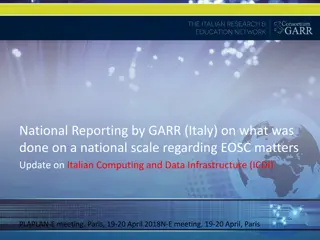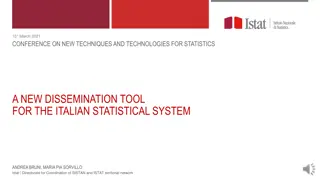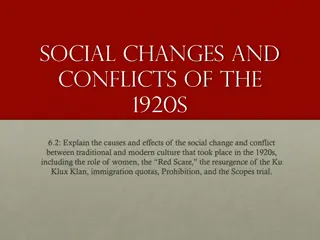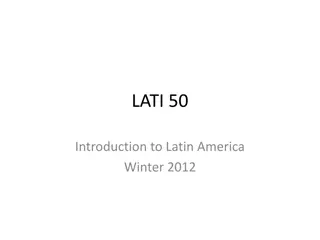The Italian Immigration Journey to America
The Italian immigration experience to America was driven by push factors such as poverty, inequality, and lack of opportunities in Italy. Southern Italians suffered under heavy taxation and poor living conditions, leading many to seek a better life in the United States. Italians anticipated earning money in America to send back home and eventually return to Italy. Despite facing challenges during their journey to America, they sought employment in cities for short periods. The promise of jobs and opportunities in America drew Italian immigrants seeking a better future for themselves and their families.
Download Presentation

Please find below an Image/Link to download the presentation.
The content on the website is provided AS IS for your information and personal use only. It may not be sold, licensed, or shared on other websites without obtaining consent from the author. Download presentation by click this link. If you encounter any issues during the download, it is possible that the publisher has removed the file from their server.
E N D
Presentation Transcript
Immigration The Italian Experience
Why did People Decide to Leave Italy? Push Factors For a long time Italy was not united, but instead was made up of individual city-states that often warred with each other and that were frequently attacked by outside invaders. In the early 1800s Italy began the process of unification, banding together to make one great nation. Even once unification was complete, there was a difference between the north and south of Italy. The north had all the money and power, while the south was extremely poor and were taxed heavily by the Italians in the north. Southern Italy was so poor, that many Southern Italians couldn t find work and couldn t feed themselves or their families. There were lots of natural disasters like earthquakes, droughts, and even a volcano erupting that added to the Italian people s sadness.
Southern Italy Suffered The Italian government was spending lots of money by taxing the poor of Southern Italy. Poor soil conditions meant the farmers couldn t grow enough food to pay the taxes and feed themselves. Southern Italians were even taxed for the number of sheep and goats they had!
Why Choose America? With America still growing, there were jobs available in the United States that were not available in Italy. Even though Italians would take the toughest jobs with low pay, it was still more than what they could earn in Italy. America was known as the Land of Opportunity where anyone could succeed.
What Italian Immigrants Anticipated. Unlike other immigrant groups, Italians never expected to stay in America. Italians wanted to come to America, earn money to send home, and then eventually return to Italy to live. Most Italian immigrants were young men and most left their wives and children back in Italy, believing they would return to live with them once they made enough money. Italians did not want to work on farms, as that would be more permanent employment. They wanted to be in the cities where they could work labor for short periods of time.
Getting to America Italians traveled by boat to America The trip was long and difficult And when they arrived they still had to get through the Ellis Island inspectors.
What America Was Really Like When You Arrived. Because most Italians couldn t speak English and were unskilled labor (meaning they needed to be taught what to do), they were given the toughest, most labor-intensive work. Italians suffered a lot of resistance from Americans and other immigrant groups who feared Italians would steal their jobs. Because Italians couldn t speak English, and many came from poverty where they didn t have a formal education, they were looked down on as dumb and stupid. Laws were passed to try and keep Italians from immigrating to the United States.



